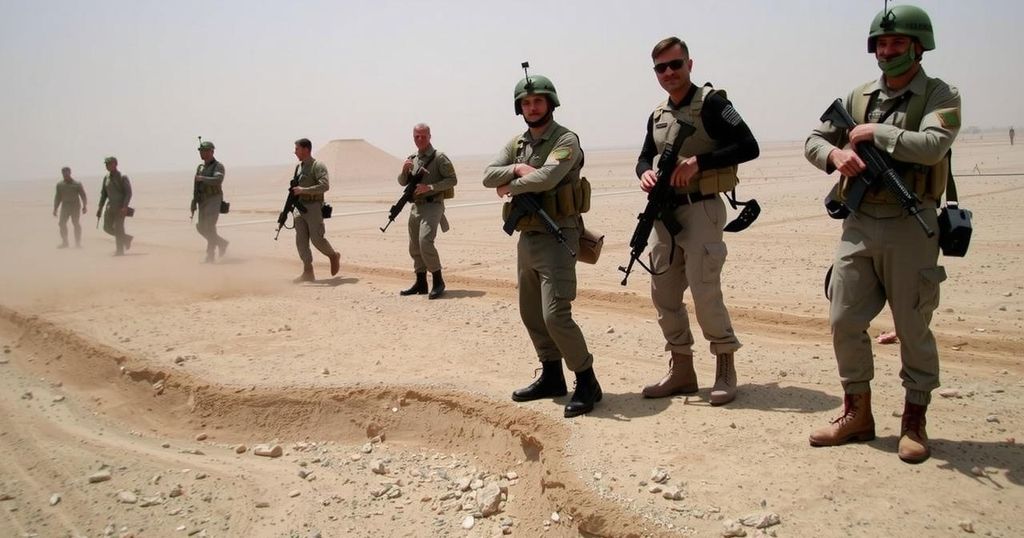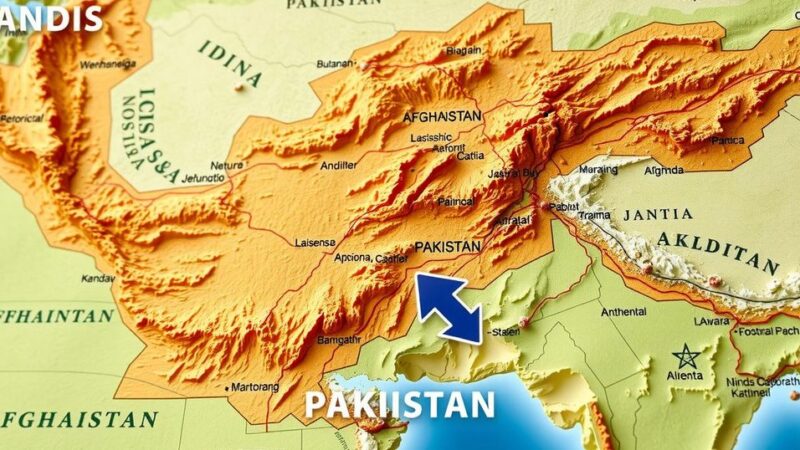U.S. Secretary of State Antony Blinken confirmed direct contact with Syrian rebel group Hayat Tahrir al-Sham (HTS) amid the collapse of Assad’s regime. The U.S. aims to establish principles for a new Syrian government and coordinate efforts with regional partners while addressing conflicts involving ISIS and Iranian-backed militias. Tensions also arise from Israel’s military actions in Syria, drawing criticism from Arab nations.
The United States has officially confirmed its direct engagement with Hayat Tahrir al-Sham (HTS), the Syrian rebel group currently in control of significant territories in Syria, as stated by Secretary of State Antony Blinken during a press briefing in Aqaba, Jordan. This marks a notable moment in U.S. foreign policy regarding a group designated as a terrorist organization. Blinken emphasized the importance of assisting in the recovery of American journalist Austin Tice, detained in Syria for over a decade, and reiterated the U.S.’s commitment to certain principles that would guide a new Syrian government. These principles include the protection of human rights, the prevention of terrorism, the facilitation of humanitarian aid, and the secure destruction of chemical weapons stocks.
While Blinken’s diplomatic engagements aimed to foster consensus on these principles among regional partners, the volatile situation in northern Syria poses a significant challenge. Ongoing clashes between Turkish-backed forces and the U.S.-backed Syrian Democratic Forces (SDF) have led to a temporary halt in anti-ISIS operations, raising concerns about potential regrouping of the terrorist organization. Strong dialogue was sought with Turkish officials to avoid undermining the SDF’s efforts, which are crucial in combating ISIS.
Furthermore, Blinken urged Iraqi Prime Minister Mohammed Shia al-Sudani to curb the influence of Iranian-backed militias and to halt the transshipment of weapons to these groups in Syria. Tensions also arose regarding Israel’s military actions in Syria, which some Arab nations have condemned. Although the U.S. has not publicly criticized Israel’s incursions, discussions continue to ensure these measures do not escalate tensions further.
The Syrian civil war, ongoing since 2011, has led to a complex web of alliances and hostilities among various factions, including numerous rebel groups and terrorist organizations. The U.S. has sought both to support moderate opposition forces and to combat the extremist groups, such as ISIS and HTS. The recent significant shifts in power dynamics, particularly the weakening of the Assad administration, have prompted the U.S. to reassess its diplomatic strategies and engage more directly with various actors on the ground. This context is crucial in understanding Secretary Blinken’s recent remarks and actions.
In conclusion, Secretary Antony Blinken’s acknowledgment of U.S. contact with the Syrian rebel group HTS marks a pivotal moment in American engagement in the region. The U.S. aims to promote stability and counter terrorism through collaborative efforts while navigating the complex geopolitical landscape characterized by ongoing conflict, shifting alliances, and the pressing need for humanitarian aid. The consequences of these dynamics, particularly concerning U.S. strategies against ISIS, remain significant and warrant continued attention as the situation develops.
Original Source: www.cnn.com







